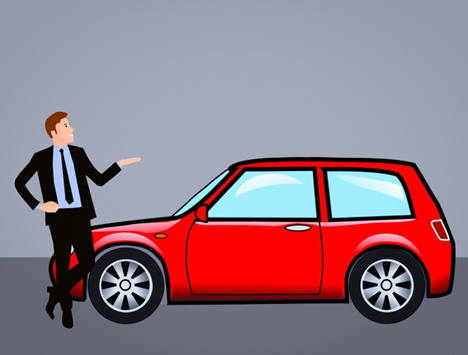Buying your first car is exciting—there’s no doubt about it. Whether you’re eyeing something sporty, practical, or budget-friendly, getting behind the wheel of your own vehicle is a major milestone. But before you fall in love with that shiny set of wheels, it’s important to make sure your finances are in order.
Smart financial planning doesn’t just help you afford a car—it helps you avoid stress later on. And the good news? It doesn’t have to be complicated.

Before diving into loans and dealerships, it’s a great idea to start with a review of TradeSmith’s services to help you feel more confident about your financial health and decision-making. Once you have a clearer picture of where you stand financially, the rest of the car-buying process becomes much easier.
Let’s break down the key things every first-time car buyer should know.
Table of Contents
Toggle1. Understand the True Cost of Owning a Car
It’s easy to focus only on the price tag when shopping for a car. But the actual cost of owning a car goes well beyond the sticker price.
Here are some common costs to budget for:
- Insurance – Varies based on age, location, driving record, and vehicle type.
- Maintenance & Repairs – Oil changes, brakes, tires, and unexpected fixes.
- Registration & Fees – Yearly costs for licensing and tags.
- Fuel – Consider your daily commute and fuel efficiency.
- Depreciation – Cars lose value over time, especially in the first few years.
For example, a $15,000 car could end up costing $18,000 or more in the first year once you factor everything in.
2. Set a Realistic Budget
Before you start car shopping, decide how much you can actually afford—not just what the dealership says you can borrow.
A good rule to follow is the 20/4/10 rule:
- 20% down payment
- 4-year loan or less
- Monthly payments under 10% of your monthly income
If your monthly take-home pay is $3,000, your car payment shouldn’t be more than $300.
Don’t forget to leave room in your budget for gas, insurance, and maintenance too.
3. New vs. Used: Know What’s Right for You
Should you buy new or used? It depends on your goals and budget.
Here’s a quick breakdown:
New Car Pros:
- Comes with a full warranty
- Fewer maintenance issues early on
- Latest features and technology
New Car Cons:
- More expensive
- Depreciates quickly (can lose 20% of value in the first year)
Used Car Pros:
- More affordable
- Slower depreciation
Used Car Cons:
- Might come with hidden issues
- Shorter or no warranty
- May require more maintenance
If you want a balance of value and peace of mind, consider a certified pre-owned vehicle, which often comes with extended warranty coverage.
4. Check Your Credit Score and Know Your Financing Options
Your credit score plays a big role in the kind of loan terms you’ll be offered.
Here’s what to do:
- Check your credit score before applying for financing.
- Improve your score if possible—pay down debts, avoid late payments.
- Shop around for loans—don’t just accept the first offer.
Common financing options include:
- Bank or credit union loans – Often lower interest rates.
- Dealership financing – Convenient, but may come with higher rates.
- Online lenders – Easy comparison, but read the fine print.
Avoid long loan terms (like 6 or 7 years), which may lower your monthly payment but increase the total interest you’ll pay.
5. Get Pre-Approved Before You Shop
Getting pre-approved for a loan helps you:
- Know exactly how much you can afford
- Avoid overspending at the dealership
- Make negotiations easier and faster
You can usually get pre-approved online through banks, credit unions, or lending services. It’s free and doesn’t lock you into anything.
Getting pre-approved also gives you a stronger position when you’re talking to dealerships. Instead of relying on dealer financing—which might come with higher interest rates or less flexible terms—you’ll already have a competitive offer in hand. This puts you in control and shows the seller that you’re a serious, well-prepared buyer.
Another benefit? You’ll save time and reduce stress. Pre-approval helps narrow your choices early, so you don’t waste energy looking at cars outside your price range. And because your credit has already been reviewed by a lender, the final steps of the buying process—once you’ve chosen your car—move much faster.
If you’re not sure where to start, many credit unions and banks have online pre-approval tools that let you check your rate without affecting your credit score. It’s a simple step that can lead to better deals and more peace of mind when it’s time to sign.

6. Plan for the Unexpected
Cars come with surprises—some good, some not so much. First-time buyers should plan for those little (or big) moments that can throw off a budget.
Consider setting aside:
- A small emergency fund for repairs or insurance increases
- Money for routine maintenance like tires, oil changes, and brake pads
Even putting aside $50–$100 a month can help you stay ahead of unexpected expenses.
Final Thoughts
Buying your first car is a big decision, and it should be exciting—not overwhelming. The key is to go in informed and prepared.
Here’s a quick recap:
- Look at the full cost of ownership, not just the sticker price.
- Set a realistic budget based on what you can truly afford.
- Weigh the pros and cons of new vs. used cars.
- Know your credit score and explore different financing options.
- Get pre-approved to simplify the buying process.
- Plan for the unexpected with a small buffer fund.
Take your time, ask questions, and don’t rush. When you plan ahead, you’re not just buying a car—you’re setting yourself up for long-term financial success.



 and Canada
and Canada 




